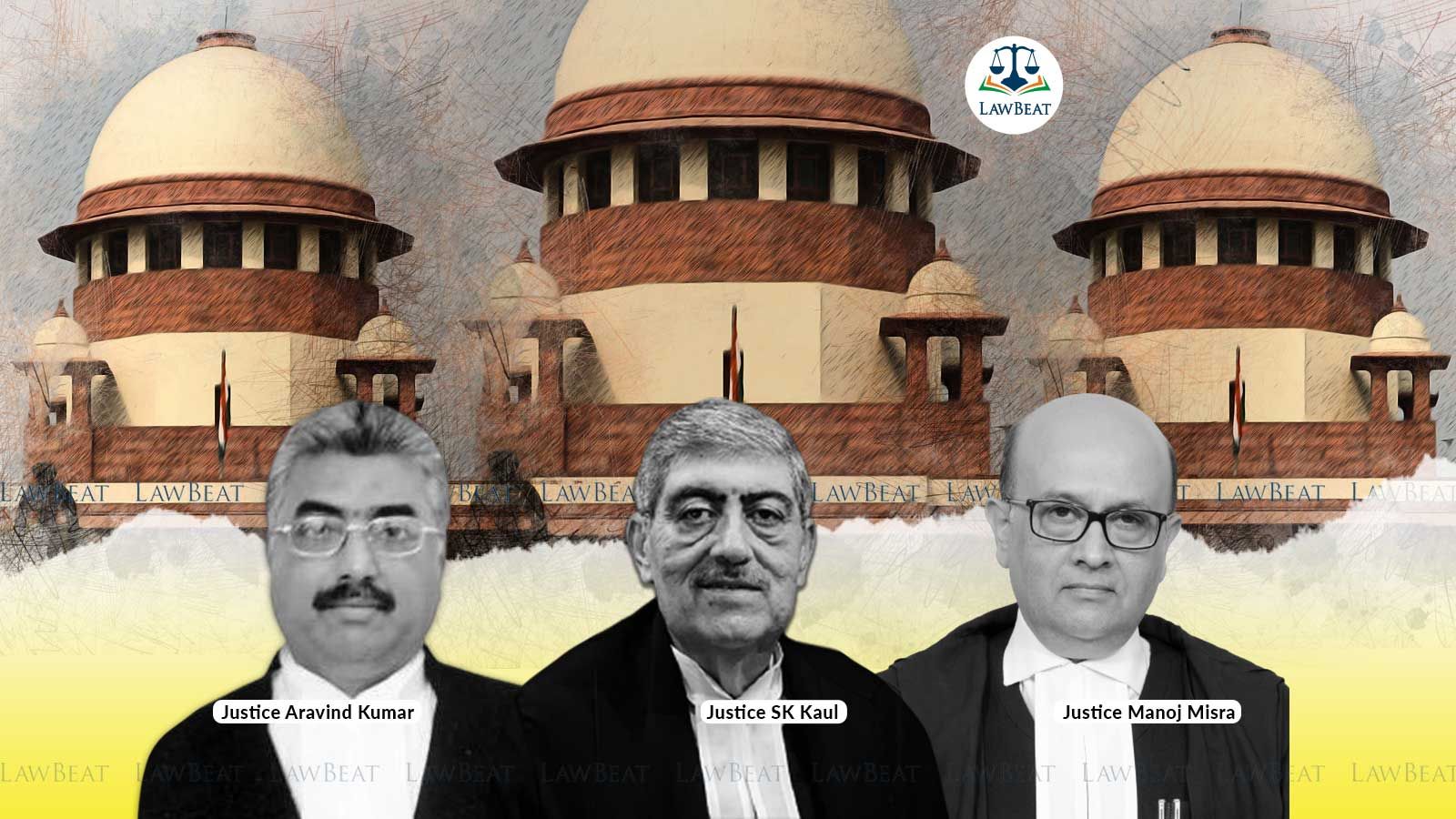SC dismisses state government’s plea against HC's acquittal of death penalty convict in murder case of wife

The Supreme Court has declined to interfere with acquittal of a man awarded the capital punishment by a trial court for killing his wife in Madhya Pradesh in 2010.
A bench of Justices Sanjay Kishan Kaul, Manoj Mishra and Aravind Kumar dismissed an appeal filed by the Madhya Pradesh government against the High Court's judgement of December 11, 2015 which had set free Phoolchand Rathore for murdering his wife Sundariya on February 1, 2010 since she had kept her jewellery with her sister Jaimatiya Bai.
The top court noted the case, based on circumstantial evidence, could not be proved beyond the reasonable doubt.
It also agreed with the High Court's conclusion that testimony of Madhuri Singh Rathore, daughter of the accused, cited as star witness, was not reliable.
The apex court also rejected the state government's bid to rely upon 'doctrine falsus in uno, falsus in omnibus', saying this is not applicable in India. Hence Madhuri's testimony, even if not acceptable on certain aspects, could be relied to prove other circumstances, is not acceptable as the HC discarded the witness on the basis of analysis of evidence, it said.
The bench also pointed out other circumstances i.e. motive, disclosure, recovery and extra judicial confession were also not proved beyond reasonable doubt, shifting the burden on the accused to explain the circumstances in which the deceased sustained injuries, or to demonstrate that he parted company of the deceased, would not be justified in the facts of the case.
Justice Misra, who authored the judgement, examined circumstances: (a) Motive; (b) Disclosure Statement and Recovery; (c) Extra Judicial Confession; and (d) Accused taking the deceased with him and soon thereafter the deceased was found in an injured state.
Holding that in a case based on circumstantial evidence, motive plays an important part, the bench noted the quarrel between the accused and the deceased was not found proved because the jewellery had already been returned back much before the date of the incident.
With regard to recovery of blood stained clothes, the court noted that the High Court was justified, doubting this at the instance of the accused from the hut and on the basis of a disclosure statement made by him due to timing and contradictions brought on record on the date of arrest.
About an extra judicial confession made by the accused to his own daughter, the apex court said it was neither disclosed in the FIR nor in statement of the daughter.
"The testimony of PW4 (daughter) with regard to the accused returning home, making extra judicial confession, changing clothes, washing blood-stained clothes and spreading them to dry has been found unreliable and shaky by the High Court for cogent reasons which do not appear perverse as to warrant an interference. Thus, the circumstance of extra judicial confession is also not proved beyond doubt," the bench said.
Dealing with another circumstance with regard to the accused taking the deceased in bicycle on the fateful date, the bench said if we accept the daughter's testimony, that by itself is not conclusive to indicate that he took her to kill her; because, admittedly, the accused held agricultural holding and it is quite possible that he may have taken his wife to assist him in the agricultural operations.
"It is common practice in villages for ladies to help their menfolk in agricultural operations. The allegation that while taking her a declaration was made that she would be killed does not inspire our confidence for the reason that the motive set out by the prosecution for such a quarrel has not been proved," the bench said.
"Otherwise also, quarrels and disputes between husband and wife are every day phenomena and not such an event which may create a strong suspicion of an impending crime much less murder. More so, where, as in the present case, marriage is subsisting since long with children out of the wedlock," the bench added.
Further, this circumstance by itself is not so clinching as to conclusively point towards the guilt of the appellant by ruling out possibility of a third party hand in the murder, the bench pointed out.
It said the time lag of about four hours between the accused and the deceased leaving together and the recovery of the body from an open space around Railways line allowed other intervening factors to operate.
Case Title: State of MP Vs. Phoolchand Rathore
